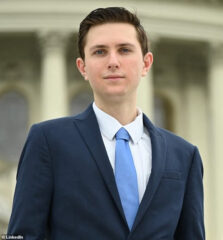By Edmond Y. Azadian
Our readers would rightfully expect us to focus in the first place on parliamentary elections held in Armenia on May 6. However, it is also worth reflecting on other elections held the same day in Europe because they may also have a bearing on Armenian issues, directly or indirectly. Thus, presidential elections took place in Serbia and France, and dramatic parliamentary elections took place in Greece.
In Serbia, the incumbent liberal president, Boris Tadic, seems to be 1 percentage point ahead of his ex-nationalist rival, Tomislav Nikolic, who is less than sanguine with Serbia’s prospects of join- ing the European Union; he would rather cooperate with Russia. On the other hand, Mr. Tadic has been the main architect of Serbia’s rapprochement with the EU. His negotiations resulted in Serbia’s candidacy to the EU last March.
Greek parliamentary elections may have far more significance on Turkey’s potential membership to the European Union. Since last November, Greece was run by an uneasy coalition of the center-right New Democracy Party and the center-left Pasok, or Socialist Party. They negotiated a bailout with the European Central Bank, against a very unpopular austerity plan, which they strong-armed through parliament. Violent social unrest erupted and finally both parties were marginalized in last Sunday’s parliamentary elections. New Democracy won 20 percent of the votes, down from 33.5 percent in 2009, and Pasok ranked third with 13.8 percent, down from 43.9 percent. The left-wing coalition, Syriza, took the second place with 16.6 percent. Now it is up to minor parties to form a coalition government to renegotiate the austerity plan rejected by the Greek electorate with the European Central Bank. Should that coalition fail to renegotiate the plan, Greece faces the prospect of being ousted from the European Union, eliminating one more hurdle from Turkey’s race to join the EU.
Another presidential race closely watched by Armenians in the homeland and the diaspora took place in France when Socialist contender Francois Hollande was facing conservative (UMP) incumbent Nicolas Sarkozy.
With 80-percent voter turnout, Mr. Hollande garnered 52 per- cent of the votes over Sarkozy’s 47 percent. The kingmaker was the leader of the extreme right-wing party, Front National, Marine Le Pen, who had won 16 percent of the votes during the first round. Sarkozy was hoping against hope that Le Pen would send the conservatives to his rescue, but like Ralph Nader did in 2000, “Le Pen dropped the guillotine on Sarkozy,” as described by Maureen Dowd of the New York Times.







